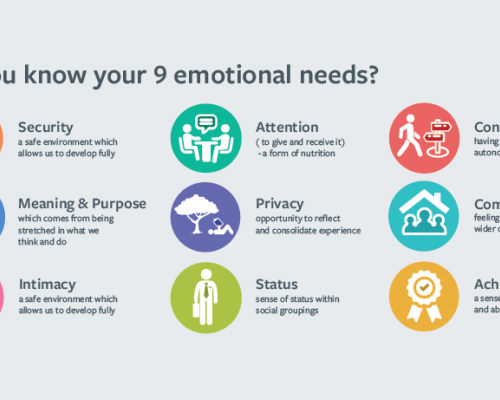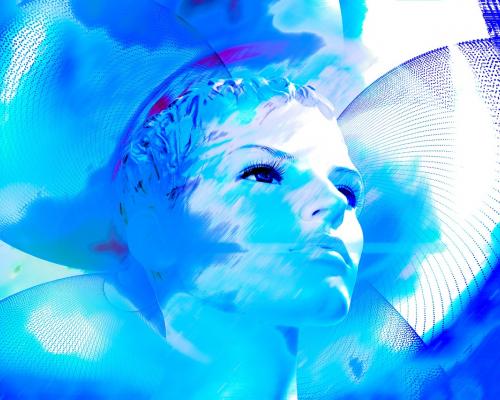Let the children play
Carol Harper explores how we can use the insights from the human givens approach to protect and improve our children’s mental health – not only during the current crisis but for the long-term …
And now for some good news! Extrapolating from the many reports and articles currently available, three out of four of our children and young people will come through the Covid pandemic in good physical and mental health. Reframing is a powerful concept and being able to get the big picture in these challenging times is central to wellbeing. You may have spotted that the actual headlines declare one in four children will suffer from anxiety and depression, maybe in the long term: this is cause for concern yet – but for each of us with the organising ideas of human givens at our disposal we can make a difference and help reduce these numbers.
Learning and wellbeing
Around the world much work is in progress to mitigate the effects of lockdown on children. But positive learning and development, the experience of being challenged and stretched, can only occur when people are in a relaxed, happy frame of mind: when they are able to get their emotional needs met in healthy balance in their environment. HG tutor Gareth Hughes has produced an excellent free webinar for parents and students, which explains how the way we engage with learning can improve our wellbeing and outlines simple steps students can take to enhance their wellbeing generally.
What we refer to in HG as ‘faulty conditioning’ can be the cause of great psychological distress, so we need to look at this – and its implications – a little more deeply. A system that imposes upon people until they are unaware of the imposition, creates an unintentional blindness – cognitive capture – a trance state. For example, I understand that some young people are suffering because exams have been cancelled and they will miss a ‘rite of passage’. They have been instructed that exams really matter and they have to get to university to succeed and have a job and buy a house and get married and have 2.2 children … but we must stop and ask: ‘whose narrative is this?’
Enlightened teachers around the world help children to express themselves (the theme of this year’s Children’s Mental Health Week). A large part of this expression can come through the arts and play – both of which have been massively curtailed of late. Finding expression in the world of nature encourages young people to engage in, and with, it. Indeed, it may be the best education there is when Earth is being plundered of its resources. We must encourage people to discover and develop their own resources and use them wisely. A new report commissioned by the UK Treasury challenges the outdated economic model of GDP. It calls to educate young people as much in ecology as ‘the three Rs’. Anyone stuck in the belief that we can have infinite economic growth on a finite planet is either mad or an economist, to paraphrase Sir David Attenborough. When we address our world in wider contexts we see a model where human need is met and all our young people are afforded the opportunities to flourish. The inequalities and social injustices which lie at the root of much emotional distress must be addressed, not in the future but now.
Negative narratives have an unfortunate habit of become self-fulfilling prophecies
Children and young people need a model of what mental health and wellbeing is – not a diagnosis or pathology for temporary setbacks. However dire our current situation is it will pass and the majority of our young will learn about themselves and develop healthy relationships. The human givens framework for mental health can enrich this understanding. Human imagination is a resource we can use to orientate ourselves towards beneficial outcomes, rather than being hijacked towards negativity. The headlines of impending mental health crises create additional anxiety and fear: negative narratives have an unfortunate habit of becoming self-fulfilling prophecies.
Human resilience is shining through
Of course, we must acknowledge and address the impact of all aspects of the pandemic on global mental health. We must also look at what lessons can be learned and how we might improve the conditions that are most likely to cause distress. Times of crisis can be catalysts for change.
In his book, The Good Ancestor, Roman Krznaric promotes the concept of using our imaginations to plan for the future: not just five or ten years ahead but to imagine the seventh generation from now and how we might, to the best of our ability, ensure the future for them. Intergenerational justice may mean the end of intergenerational trauma. We must give children and young people hope. That’s not to say being overly optimistic but it’s not being pessimistic either. It is giving them solid ground to stand and grow on; helping them to meet the challenges of this century and the next. The one constant is change and our children need general purpose life skills to cope with this. According to a recent UN report: Although the challenges faced are unparalleled, natural resilience is showing through – something that will be essential to ensuring societies can function and people recover from the impacts of the pandemic. It is possible the experience of COVID-19 could bring us together and make us kinder to one another.
“Nothing about us, without us”
In Human Givens practice we see that tyrannical thinking and unhelpful beliefs shackle people within narrow contexts. In order to expand horizons we often need to challenge others – and ourselves. The author Yuval Noah Harare has suggested we have to “keep ahead of the algorithms and ‘know yourself’.” He proposes the key elements that will lead to a more compassionate world are critical thinking, communication, collaboration and co-operation. Our children and those into whose care they are entrusted need reassurance: they are receiving it I know – but any unrealistic expectations and faulty conditioning also need to be addressed, with powerful reframes.
Conclusions and recommendations in a policy brief by the Mental Health Innovation Network, highlighted the importance of encouraging the direct and full participation of young people in the research, design, implementation and practice of mental health policies. As the Santana lyrics say: ‘Let the children play, Let the children have their say’.
The old adage, it takes a village to raise a child has never been more true. However you are working with the human givens principles, you can have an influence on our children’s wellbeing: and you will be a ‘good ancestor’.
Childhood trauma
There has been much talk during the pandemic about the effects of trauma. Whatever diagnosis a person receives, in HG terms we always bring it back to the question of needs. We know of the many tragic situations which may cause a child to struggle with their emotional health – some of which could be described as intergenerational. But the overarching challenge is social as much as psychological. A paper from the United Nations recommends a ‘whole society’ approach to promote, protect and care for those in difficulty.
With lockdown, perhaps now more than ever, we are aware of the effects on the most vulnerable; for adults and children whose needs were already so poorly met in their environment the current crisis exacerbates the conditions where deep wounds are already being inflicted physically and emotionally. Schools are becoming ‘trauma informed’ and signs of adverse childhood experiences help professionals understand behaviours better, providing help and support as needed. Stress, faulty conditioning (including stories people are told and tell themselves) and, tragically, abuse of whatever kind, inhibit healthy growth and development. At worst they lead to post traumatic stress which may cast a long shadow over a person’s life. Zeinab Hijazi of UNICEF has said, “it is impossible to separate child and parent mental health since one shapes the other.”
However trauma manifests, our understanding within the human givens approach gives us the tools to help people ‘detach the emotion from the memory’. We reframe an experience within a wider context and promote ‘post traumatic growth’. We may help a client to reframe their experience in other ways, through story and metaphor: or a reinterpretation of their own narrative. Joe Griffin told of a case whereby a badly abused young woman described herself as abnormal because of the experience she had suffered. The therapist was able to reassure her: no, you are a perfectly normal young woman who has had an abnormal experience. At an appropriate time, simply normalising an individual’s distress is a powerful reframe. At the moment, stress and anxiety are normal functions of a healthy brain: the more we can share our knowledge and understanding in our communities, the healthier they will be. You can read more about the HG approach to treating PTSD and trauma here.
The therapeutic effects of reflective listening and the giving of quality attention are not the sole preserve of the professional. Whoever we are, parent, teacher, partner or friend there is no relationship that will not benefit from these key skills, and no life that will not improve when emotional needs can be met in healthy balance. The recent international conference on Intergenerational Trauma brought together world-leading authorities and experts in the field of trauma and recovery. On the theme of ‘Break the Cycle’, speakers consistently told their stories of recovery and, as I listened, the key factors which shone through were fundamentally about emotional needs being met, reframing a negative experience and finding the fortitude to choose their path in life.
Our experiences need not define us. Our life purpose might.
Since the human givens approach was established over twenty years ago, it has been successfully used by HG therapists, teachers, social workers, school counsellors and parents to help improve the lives and wellbeing of thousands of children and young people. You can find a wealth of HG resources developed to help improve the lives and wellbeing of children and young people here.
Further reading:
- Krznaric, Roman (2020). The Good Ancestor: how to think long term in a short-term world. W.H.Allen
- Harari, Yuval Noah (2018). 21 lessons for the 21st Century. Penguin Random House UK
© Carol Harper, February 2021
Latest Tweets:
Tweets by humangivensLatest News:
HG practitioner participates in global congress
HG practitioner Felicity Jaffrey, who lives and works in Egypt, received the extraordinary honour of being invited to speak at Egypt’s hugely prestigious Global Congress on Population, Health and Human Development (PHDC24) in Cairo in October.
SCoPEd - latest update
The six SCoPEd partners have published their latest update on the important work currently underway with regards to the SCoPEd framework implementation, governance and impact assessment.
Date posted: 14/02/2024












